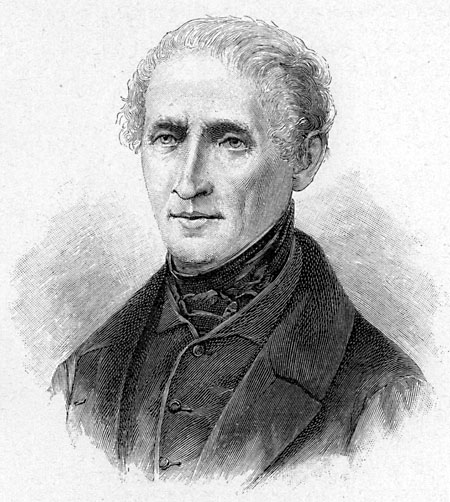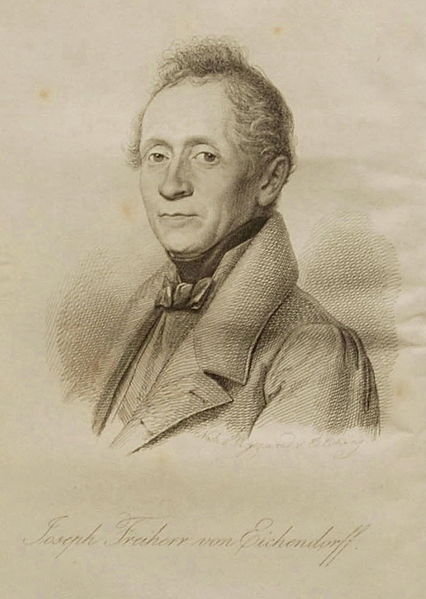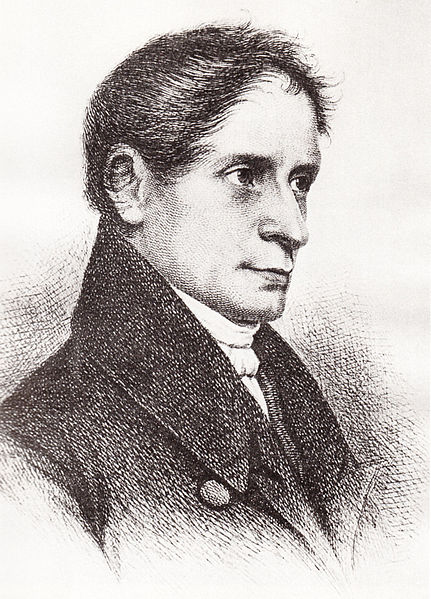<Back to Index>
- Writer Joseph Eichendorff, 1788
PAGE SPONSOR



Joseph Freiherr von Eichendorff (10 March 1788 – 26 November 1857) was a German poet and novelist of the later German romantic school.
Eichendorff
is regarded as one of the most important German Romantics and his works
have sustained high popularity in Germany from production to the
present day.
Eichendorff was born at Schloß Lubowitz near Ratibor in Upper Silesia in 1788. His parents were the Prussian officer Adolf Freiherr von Eichendorff and his wife, Karoline Freiin von Kloche, who came from an aristocratic Roman Catholic family. He studied law in Halle (1805 – 1806) and Heidelberg (1807 – 1808). In 1808 he traveled through Europe, visiting Paris and Vienna. In 1810, he returned home to help his father run the family estate. The same year he met Johann Gottlieb Fichte, Achim von Arnim, Clemens Brentano, and Heinrich von Kleist in Berlin. He finished his studies in Vienna in 1812. From 1813 to 1815 he fought in the Napoleonic Wars as a volunteer in the famous Lützow corps.
From
1816, Eichendorff worked in various capacities in the administrative
service of the Prussian state. He started with a judicial office in Breslau. In 1821, Eichendorff became school inspector in Danzig, in 1824 Oberpräsidialrat in Königsberg.
He moved with his family to Berlin in 1831, where he worked for several
ministries, until he retired in 1844. Eichendorff died in Neiße, Upper Silesia, in 1857.
Eichendorff's guiding poetic theme was that Man should find happiness in full absorption of the beauties and changing moods of Nature. He also wrote a history of German literature that was posthumously published. Eichendorff's poetry has been set by many composers, including Schumann, Mendelssohn, Brahms, Hugo Wolf, Richard Strauss, Friedrich Nietzsche, Hans Pfitzner, and Alexander Zemlinsky.
Eichendorff's best known work, Aus dem Leben eines Taugenichts (English: Of the Life of a Good - For - Nothing) is typical romantic novella, whose main themes are voyage and love. The protagonist leaves his father's mill and becomes a gardener at a Viennese castle where he falls in love with the daughter of the duke. Because she is unattainable he travels to Italy but then returns and learns that she had been adopted by the duke, so nothing stands in the way of a marriage between them.